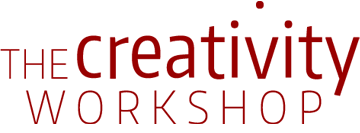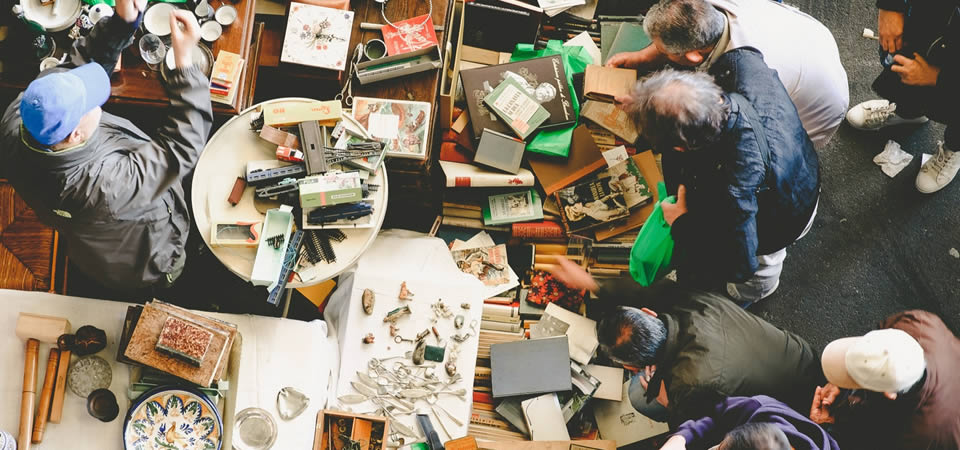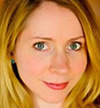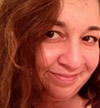1
Spend 10 minutes each day (OK you can take off weekends) doing the automatic writing or drawing we did in class. After a few weeks go back, read or look at what you did and edit it by pulling out phrases you like or if drawing, find even more things in the scribbles than you discovered the first time around.
2
Buy a glass fishbowl. Fill it with ‘creativity prompts’, such as objects, images, quotations, etc that you can go to when you lose track of your imaginative self. When you are out of creative steam, pick one of the pieces of paper or things out of the fishbowl at random. Write, draw, design, riff, transform that item by using it to stimulate you.
3
Cultivate beauty in your life: inner and outer, natural and artificial, ordinary or weird.
4
Pick a special place in your home and make a ‘shrine’ to your creative self. Put out little things that provoke inspiration, memory, or the yearning to see anew. Use it as your creativity workspace.
5
Experiment in various mediums with your sense of color, texture, and line. Add elements of surprise or quirkiness to the mix.
The unexpected can jolt you out of complacency and into inspiration.
6
Go somewhere new–as close as a neighborhood restaurant you’ve never tried or as far as another continent.
New places, new experiences excite our minds and senses. When we are excited our creative abilities soar.
7
Spend a few minutes a daydreaming out the window. Write and draw as you dream.
8
Don’t censor yourself. Some of the best ideas aren’t immediately apparent as such. Write them down and keep them.
9
Do something new or something old in a brand new way. As Picasso said “I am always doing that which I can not do, in order that I may learn how to do it.”
10
Slow down your perceptions so you savor them–that means eat slowly and taste your food, look closely at the flowers in the garden, spend time writing down and drawing your perceptions.
11
Believe in and follow your “Magic What Ifs”.
What if I really am an amazing writer?
What if I could make a revolutionary spaceship? What if when I walk across a room it feels like floating?
When we ‘what if’ ourselves, we start to believe we can achieve our dreams. That is the first step to making them come true.
12
Spend 10 minutes looking around with the eyes of a child. Remember that sense of wonderment, love of color, surprise, curiosity and hunger to explore. It can get your creativity going because you are remembering how you were once very imaginative.
13
Take a notebook and pen/pencil everywhere you go and jot down your observations. We often have innovative ideas but we forget them if we don’t record them.
14
Play with changing your persona (really or imaginatively). Pretend you are in a profession that you are not and see what it feels like. Here are just a few possibilities:
– Be an archeologist for an afternoon and see how that affects your visions. Record your findings.
– Imagine you are a painter/actor/composer. Take notes and draw from that persona.
– Imagine you are a whale as you walk around the forest or in a city. What do you look for and what do you discover in your whale-dom? Record your findings.
15
Don’t over-criticize yourself. At worst it will kill and at best cripple your creative hopes and dreams.
16
Make up a visualization in which you observe yourself imagining and creating effortlessly. Picture yourself loving the process.
17
Just Do It! Creativity is a muscle: use it or lose it. Dance, draw, brainstorm, change your life. The more you use your creativity, the easier it becomes and the better you get at it.
18
Collaborate creatively with like-minded friends–write a journal together, make a quilt, design a new play space, choreograph a dance piece, start a new business.
19
If it appeals to you, take a day to dress outside your comfort zone. A bit wildly, even. Revel in color and texture. Buy or make a fabulous hat. Don’t be age appropriate.
20
Remember the words of Samuel Becket, on the secret to life-long creativity: “fail, fail again, fail better”!
21
Use visualization often. You will get better and better at envisioning, at seeing inside your mind. Make your visualizations as visceral and concrete as possible. Create your own visualizations: record them and listen to them in a quiet place. As you listen to them, write and draw in response to them. See the link to Create Your Own In-Visioning Exercises.
22
Play, play, play. We learn by playing, we grow by it, and we definitely create by it.
23
Find people who understand your love and/or need of creativity in your life. Find them and share it with them.
Do our ‘whispering’ with them as you exchange ideas and concrete
expressions of creativity, such as writing, art, storytelling, crafts, garden making, innovative cooking etc.
Chemistry between people is real and if you add to it a passion or yearning for creative expression, you will find your Creative Tribe. They are waiting for you. We are waiting for each other. At The Creativity Workshop, you may have met some of them already.
24
Stay in touch in whatever way you want with your fellow participants and with us, “no matter where you decide to go with your life, no matter what you decide to do with your life.”
25
Creativity is a gift and the gift of creativity is meant to be shared. Share what you learned here. Pass it forward.





